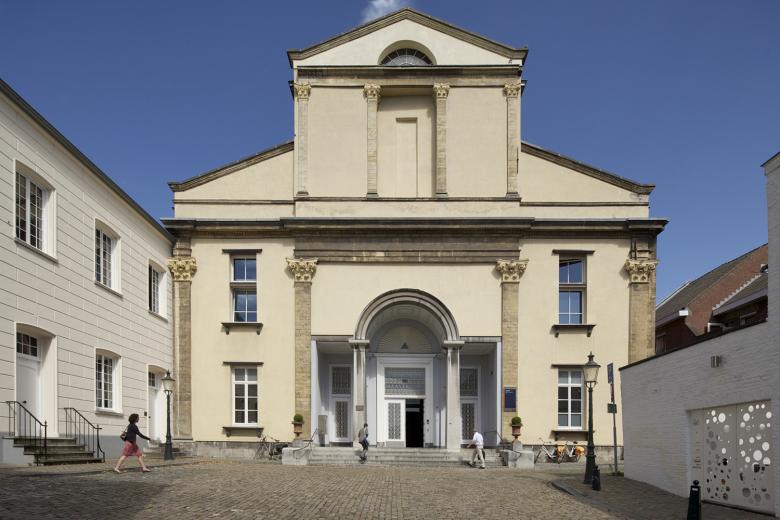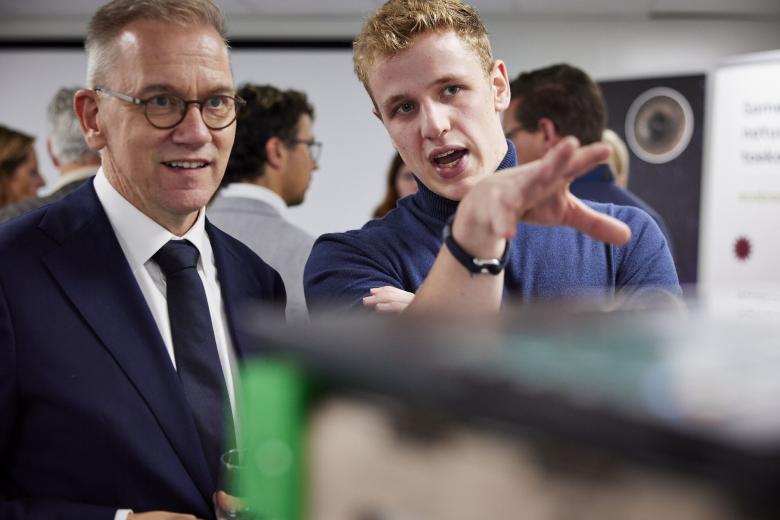Double inaugural lecture in Maastricht
Paul Volders, a cardiologist at the Cardiovascular Centre of Maastricht UMC+, and Prof. Monika Stoll, a researcher with the University of Münster, have both recently been inaugurated as professors holding an endowed chair at Maastricht University. The remits of the two chairs complement one another: Genetic Cardiology (Volders) and Genetic Epidemiology and Statistical Genetics (Stoll).
Volders and Stoll carry out research into the genetic backgrounds of cardiovascular disease. A few years ago, Paul Volders detected a genetic disorder occurring in several interrelated families in South Limburg which can cause cardiac arrhythmia and even sudden cardiac death. His ongoing investigation into this disorder is called the ‘Worm Study’ after the river on the south-eastern border of Limburg. In the Worm Study, Volder focusses on the cardiological side of the story. Monika Stoll mainly investigates the causes of cardiovascular conditions on a molecular level.
Perfect study material
Stoll is also investigating the way in which the human body adapts evolutionarily to hereditary disorders. The Worm Study supplies perfect study material to this end. As a genetic epidemiologist, she benefits from the existence of a so-called founder mutation, i.e. a genetic disorder which occurs in several, interrelated families and which can be traced back to a single person, the founder. Many cardiovascular diseases (including the cardiac arrhythmias in the Worm Study) can currently be explained only to a small extent in terms of genetic variations, the ‘tip of the iceberg’ as it were. The largest part is below the surface of the water.
Divers in cold seawater
Stoll and Volders, looking at the same problem from different angles, hope to develop methods to prevent cardiovascular disorders by identifying the basis of a disorder at an early stage. Volders: ‘As the titles of our inaugural lectures indicate, we are in the process of exploring an iceberg of which the largest part is under water. For now, we are like divers in the cold seawater who try to estimate the size, composition and risks of the submerged ice. But with current cardiogenetic developments we will be able to shrink the base of the ice fast in individual cases. This may be bad for the sea level, but to patients and their family members it will bring important improvements in the prevention and treatment of serious heart problems, including sudden cardiac death.’
The two brand-new professors have been appointed to the CARIM School for Cardiovascular Diseases. The inaugural lecture of Volders is titled 'Below Icebergs' (Onder IJsbergen), while Prof. Stoll’s inaugural lecture is titled 'The tip of the Iceberg'.
Also read
-
UM seeks new balance between the university and student associations
Maastricht University is suspending its relationship with student associations Tragos and Circumflex until further notice. Discussions with the boards of these associations have revealed that agreements outlined in the Code of Conduct have not been upheld. Experience from recent years shows that these...
-
Opportunities and concerns take centre stage during Minister Bruins' working visit to Maastricht
On Friday afternoon, 18 October, Minister Eppo Bruins (Education, Culture, and Science) paid a working visit to Maastricht. There, he was briefed by Limburg's educational institutions on current educational topics from the Education Manifesto. The minister also engaged in conversations with teachers...
-
Education minister's parliamentary letter: threat to education and region draws nearer
On 15 October, education minister Bruins informed the Netherlands House of Representatives of his plans to reduce the number of international students in the Netherlands through the Internationalisation in Balance Act (‘Wet Internationalisering in Balans’). Maastricht University has serious concerns...